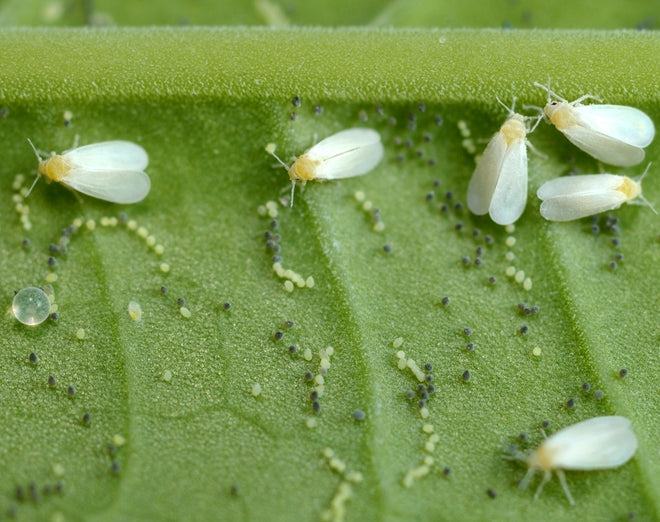Aphids - Pesky Little Sap Suckers
Aphids are one of the most common pests that affect plants, particularly in greenhouses and gardens. These tiny insects feed on the sap of plants, which can cause wilting, yellowing, and stunted growth. Additionally, aphids can transmit diseases from one plant to another, making them a major problem for many gardeners and horticulturists. Fortunately, there are a number of effective strategies that can be used to get rid of aphids and protect your plants from their harmful effects.
The first step in getting rid of aphids is to identify the type of aphid that is affecting your plants. There are hundreds of species of aphids, and each type has a different set of preferred hosts, life cycle, and control methods. For example, some species of aphids feed exclusively on particular types of plants, such as roses or cabbages, while others will feed on a wide range of plants. Understanding the type of aphid that is affecting your plants will help you to choose the most effective control methods.
One of the simplest and most effective ways to get rid of aphids is to use a strong blast of water from a garden hose to wash the insects off of your plants. This is an especially effective method for getting rid of aphids on the undersides of leaves, which are often difficult to reach with other control methods. Be sure to aim the water directly at the aphids, and to repeat the treatment every few days until the insects are gone.
Another effective way to get rid of aphids is to use insecticidal soap. This is a type of pesticide that is specifically designed to control soft-bodied insects, like aphids. Insecticidal soap works by disrupting the cell membranes of the insects, causing them to dehydrate and die. When using insecticidal soap, it is important to be thorough in your application, making sure to cover all parts of the plant, including the undersides of leaves.
A third option for getting rid of aphids is to use neem oil. This is a natural product made from the seeds of the neem tree, and has been used for centuries as a natural insecticide in many parts of the world. Neem oil works by disrupting the normal hormonal processes of insects, making it difficult for them to feed and lay eggs. When using neem oil, it is important to follow the label instructions carefully, as some plants can be sensitive to this product.
Another natural method for getting rid of aphids is to introduce beneficial insects into your garden. Ladybugs, for example, are one of the most effective natural predators of aphids, and can be purchased from many garden centers or online suppliers. When introducing ladybugs into your garden, be sure to place them in areas where they will have easy access to the aphids, and to avoid using insecticides that may harm these beneficial insects.
Finally, it is important to take steps to prevent aphids from returning to your plants. One of the most effective ways to do this is to practice good cultural practices, such as keeping your plants healthy and well-watered, and removing any diseased or infested plant material promptly. Additionally, avoiding the use of broad-spectrum insecticides, which can kill both beneficial insects and pests, can help to encourage populations of natural predators that will help to control aphid populations in your garden.
In conclusion, getting rid of aphids can be a challenge, but there are a number of effective strategies that can be used to control these pests and protect your plants. From using a strong blast of water to insecticidal soap, neem oil, and beneficial insects, there are many options available to gardeners and horticulturists.


0 comments